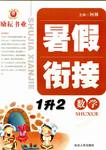题目内容
IV. 阅读理解:(共20题,每小题2分,共40分)
My father had returned from his business visit to London when I came in, rather late, to supper. I could tell at once that he and my mother had been discussing something. In that half-playful, half-serious way I knew so well, he said, "How would you like to go to Eton?"
"You bet," I cried quickly catching the joke. Everyone knew it was the most expensive, the most famous of schools. You had to be entered at birth, if not before. Besides, even at 12 or 13, I understood my father. He disliked any form of showing off. He always knew his proper station in life, which was in the middle of the middle class, our house was medium-sized; he had avoided joining Royal Liverpool Golf Club and went to a smaller one instead; though once he had got a second-hand Rolls-Royce at a remarkably low price, he felt embarrassed driving it, and quickly changed it for an Austin 1100.
This could only be his delightful way of telling me that the whole boarding school idea was to be dropped. Alas! I should also have remembered that he had a liking for being different from everyone else, if it did not conflict(冲突) with his fear of drawing attention to himself.
It seemed that he had happened to be talking to Graham Brown of the London office, a very nice fellow, and Graham had a friend who had just entered his boy at the school, and while he was in that part of the world he thought he might just as well phone them. I remember my eyes stinging(刺痛) and my hands shaking with the puzzlement of my feelings. There was excitement, at the heart of great sadness.
"Oh, he doesn't want to go away," said my mother, "You shouldn't go on like this.” “It's up to him," said my father. "He can make up his own mind."
36. The house the writer's family lived in was ________.
A. the best they could afford B. right for their social position
C. for showing off D. rather small
37. His father sold his Roils-Royce because ________.
A. it made him feel uneasy B. it was too old to work well
C. it was too expensive to possess D. it was too cheap
38. The writer's father enjoyed being in the middle class because ________.
A. it drew attention to him B. it didn't bring him in arguments
C. it was understood as a joke D. he disliked showing off
39. What was the writer's reaction to the idea of going to Eton?
A. He was very unhappy. B. He didn't believe it.
C. He was delighted. D. He had mixed feelings.
40. We can know from the passage that ________.
A. Children who can go to Eton are very famous
B. Children can go to Eton if they will
C. It is very difficult for a child to get a chance to go to Eton
D. Children don't have the right to decide whether they will go to Eton
【小题1】B
【小题2】A
【小题3】D
【小题4】D
【小题5】C

 励耘书业暑假衔接宁波出版社系列答案
励耘书业暑假衔接宁波出版社系列答案IV. 阅读理解:(共20题,每小题2分,共40分)
A long time ago, before there was any money (coins or paper money), people got the things that they needed by trading or exchanging. Salt was one of the first items used to exchange for other items. Later, some of the common things that were used for exchanging were tea leaves, shells, feathers, animal teeth, tobacco, and blankets. Around 3000 BC, barley, a type of grain, was used for exchanging.
The world’s first metal money was developed by the Sumerians who melted silver into small bars all weighing the same. This was around 1000 BC. About three hundred years later, people started using coins as official money.
Around 640 BC, people in the ancient kingdom of Lydia ( which was in Turkey) created special coins of exact with and purity (纯度). They were made of gold and silver and were stamped with a lion’s head.
Later, other empires such as Greece, Persia, and Rome adopted the concept of coins and started developing their own in many different shapes and different metals.
Around the year 1000, the Chinese started using paper money. The Chinese were the first to use paper money. The Europeans discovered this thanks to Marco Polo who went to China in 1295. the Chinese had different values for the paper notes which were made by the Chinese government.
Around 1661, Sweden became the first European country to make paper money. Until 1850, the Spanish dollar was the coin most widely used throughout the world.
1What is the best title for this passage?
|
A. |
The history of money |
|
B. |
How people traded in the past |
|
C. |
The invention of paper money |
|
D. |
The use of coins around the world |
2We learn that before coins and paper money were used, _____.
|
A. |
barley had always been used for exchanging |
|
B. |
only a few people knew how to trade with others |
|
C. |
salt was the most widely used item for exchanging |
|
D. |
many kinds of things were used for exchanging |
3According to the passage, when did people start using coins as official money?
|
A. |
Around 1300 BC. |
B. |
Around 1000 BC. |
|
C. |
Around 700 BC. |
D. |
Around 640 BC. |
4The underlined word “adopted” in Paragraph 4 probably means “____”.
|
A. |
replaced |
B. |
changed |
|
C. |
accepted |
D. |
invented |
5. Which of the following countries first started to use paper money?
A. Spain B. China C. Sweden D. Lydia
 et can help to save money. Some useful websites include www.Travelocity.com. www.bargains-lowestfare.cm and www.Ecoomictravel.co
et can help to save money. Some useful websites include www.Travelocity.com. www.bargains-lowestfare.cm and www.Ecoomictravel.co  o your homework
o your homework